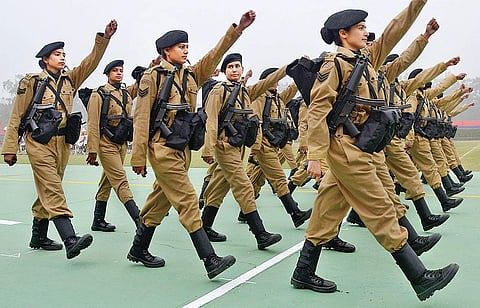

CHENNAI: Activists from across the State have sought decentralised gender budgeting with allocations based on vulnerability indicators like caste and occupation of women, ahead of the fifth gender budget statement to be presented by the Tamil Nadu government in the budget session of 2022.
"A general overview of women is not enough. For gender budgeting to be successful, it has to concentrate on marginalised sections of women and help in bringing social equity. Gender budgeting can be a fantastic tool to uplift vulnerable women," said Kamatchi, senior researcher, Social Watch.
The State's gender budget statement outlines the probable outlay for women during the fiscal. The first such statement was presented in 2018. "At present, not many, including bureaucrats, are aware that gender budgeting is a part of the Appendices to Budget Memorandum. There is a need to make this aspect more publicly visible so that it can initiate discussion," added Kamatchi.
A statement put forth by the activists stated that the budget preparation process should be intersectional and decentralised, starting from urban and rural local bodies. "With the absence of area sabhas in urban areas, there is a need to engage the community in the gender budget exercises,” the statement said. It also sought gender budgeting in all departments.
The statement called for indicators such as caste, religion, women with disabilities, women engaged in vulnerable occupations or facing residential vulnerabilities to be taken into consideration while preparing the gender budget statement. It also stressed the need for a ‘gender budgeting tracking dashboard’ in order to track the flow of funds across districts, taluks and panchayats.
"The status of expenditure for the previous budget year should be made available in the current budget session - higher allocation does not imply higher rate of expenditure. There is a need to evolve a ‘gender budget bill’ to ensure accountability and a gender audit to assess the expenditure," it said.
The statement is endorsed by Sheelu Francis, TN Women's Collective, Aranga Malika, director of Women Studies Centre in Ethiraj college, Vanessa Peter of IRCDUC, Josephine Amala Valarmathi of National Domestic Workers Movement, Burnad Fatima of SRED, Meenakshi Balasubramaniyan, founder of Equals, consultants Geetha Narayanan and Beulah Azariah, Esther Mariaselvam of ActionAid, Assumptha of Social Equity Alliance and Sundari of TN Resources Team.
Bimla Chandrasekaran of Ekta Resource Centre for Women told The New Indian Express, "The goal is to ensure that no woman is left behind. The intention is good but we must ensure that it translates to action."